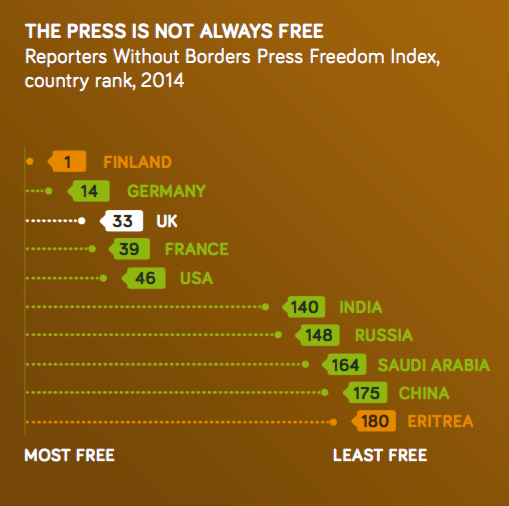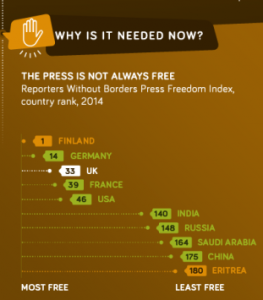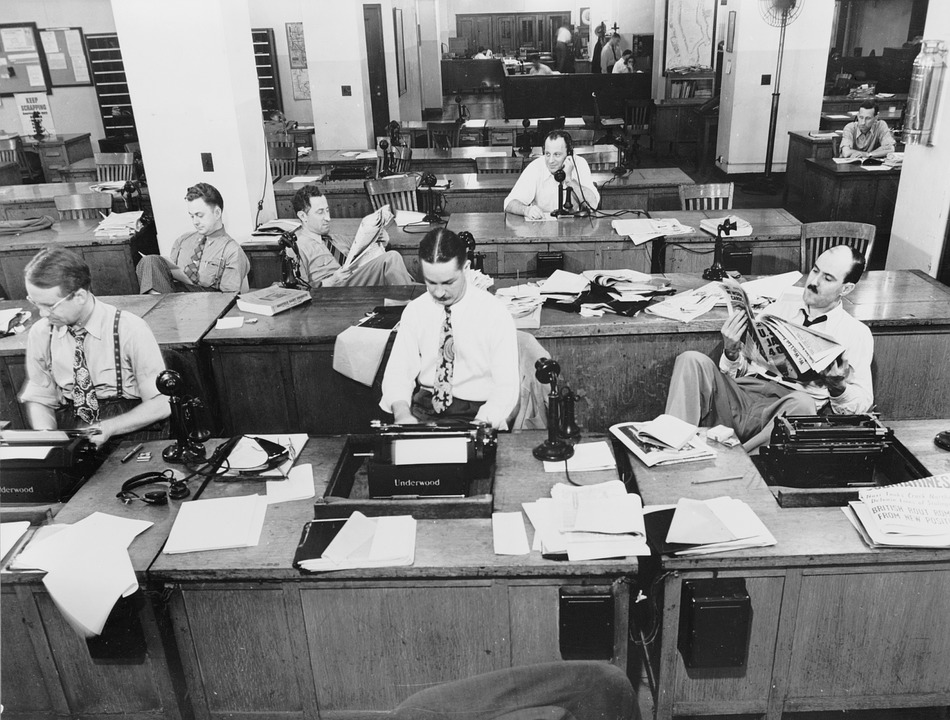We have just launched a beautiful set of 16 infographics, each explaining one of the key human rights protected by law. You can see them all here and the Article 10 infographic here.
Article 10 of the European Convention on Human Rights protects the right to free expression. It means we can have our own opinions and share them with others. It applies even if our views might upset or offend people. But the right to say whatever we want can be restricted in certain circumstances, for example to prevent crime or protect the rights or reputation of others.
Free speech has long been recognised as an important human right. In 1689, the English Bill of Rights provided for freedom of speech in Parliament. Free speech was protected under the French Declaration of the Rights of Man and the United States Constitution. The Universal Declaration of Human Rights also guaranteed free expression in 1948.
Importantly, the right to free speech has meant that it is a lot harder for journalists to be forced to reveal their sources, the press can report freely on public interest issues and even offensive speech attracts a level of protection.
Although the right to free speech is well established in principle, there remain many circumstances where  expression is restricted in practice. The press is not free everywhere in the world to report on issues of social importance. For example, although countries like the UK, Germany, France and the United States benefit from a free press, in other countries such as Russia, Saudi Arabia, China and Eritrea, journalists are less free to report on issues of public interest. Between 2005 and 2014, 734 journalists were killed because of their work.
expression is restricted in practice. The press is not free everywhere in the world to report on issues of social importance. For example, although countries like the UK, Germany, France and the United States benefit from a free press, in other countries such as Russia, Saudi Arabia, China and Eritrea, journalists are less free to report on issues of public interest. Between 2005 and 2014, 734 journalists were killed because of their work.
Free expression has for a long time rightly been recognised as a human right of fundamental importance. Free speech is essential to life in a democratic society.
Natasha Holcroft-Emmess






